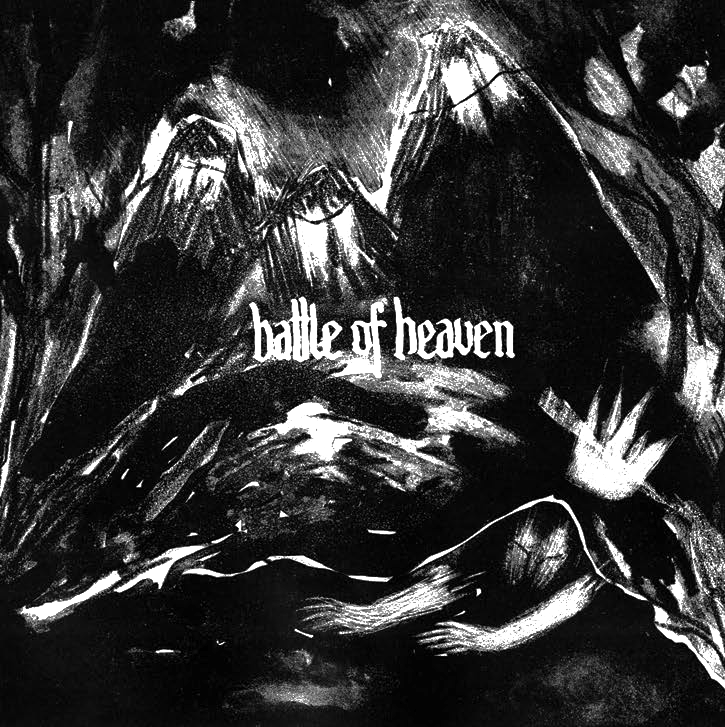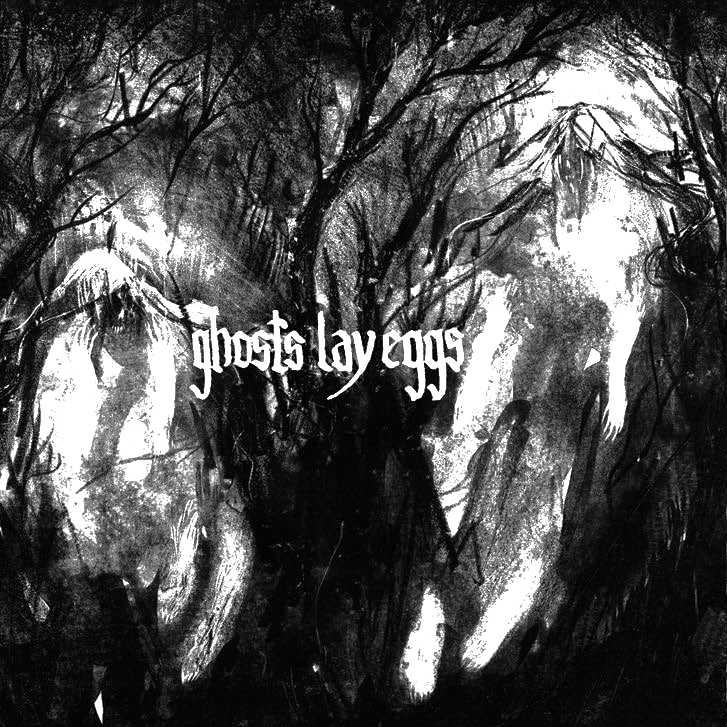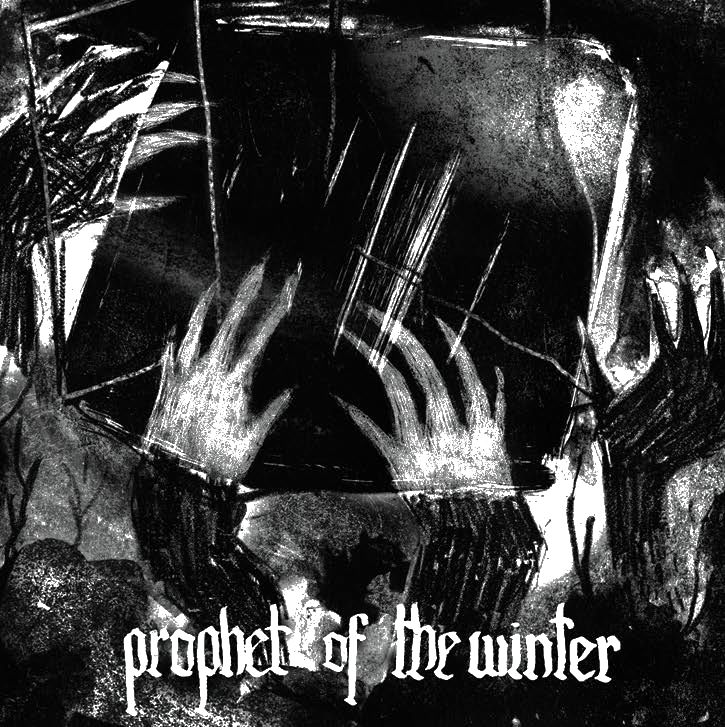Over The Voids
2017-10-20
by Niklas Göransson
Polish music project Over The Voids is one man’s vision of a nineties black metal revival – multi-instrumentalist Michał reflects over the validity of doctrinal faith, and discusses the spellbinding mysteries posed by human mortality.
– Many years ago, back when I was a teenager, I used to buy a lot of cassettes in a metal shop here in Kraków. Some time ago, I had a moment of nostalgia where I wanted to revisit those days. I was almost aggressively browsing the internet, hunting for new music, searching for that one album capable of giving me the same sort of chills that “Bergtatt” (ULVER), “Panzerfaust” (DARKTHRONE), “Blood on Ice” (BATHORY) or “The Shadowthrone” (SATYRICON) did in my teenage years.
Michał describes a vivid feeling of missing out on something – that somewhere among the shop’s shelves lurked a dusty tape he’d once neglected but which would now be revealed to him with the availability of the internet.
– I had this image of quintessential mid-nineties Norwegian-sounding black metal with a wintry forest on the cover. After long and futile searches, I began thinking that since the blueprint for this music was so clear in my head, perhaps I should make it myself? My ambition was to create a record I’d want to listen to, fuelled with very specific feelings of teenage cassette-shop nostalgia.
This brings us to the self-titled debut album of OVER THE VOIDS, scheduled for release on November 24.
– The idea was to make it entirely on my own, with the less people involved the better. I handled all instruments myself while M (MGŁA) did an amazing job as recording and mixing engineer. My friend Paulina Antolak made the font I used in the booklet, as well as those ghostly lithographs illustrating each song. The stunning forest photography is courtesy of a Polish new media artist called Anna Mokrzycka and definitely fits the record’s concept, which is all about ghosts and forests.

Much like the Scandinavian albums he mentioned as lodestars, the metal peddled by OVER THE VOIDS is of the more spectral and drifting variety, rather than a rousing of the flesh.
– Definitely not headbanging music, no, despite the aggressive drumming and sharp, combo-recorded guitar. I’d much rather think of it as narrative music; something that tells a story instead of stirring people’s bodies. It was supposed to be precisely the kind of black metal I’d like to hear now. I say that it was supposed to, because it didn’t quite end up the exact album I was aiming for. I like it but failed in several ways. Still, it makes me want to head back into studio again and record new stuff closer to my concept. The ultimate test would be to magically send the record to the sixteen-year-old me; and if this skinny, long-haired dude says it is good, then I did my job well.
I noticed a few comments based on the teaser that premiered in September, comparing OVER THE VOIDS to another and slightly more prolific Polish ensemble of which live line-up Michał is part – remarks I’d have to concede are perhaps not entirely unfounded.
– On the one hand, I’m sure I share a lot of influences with M and Darkside from MGŁA. We listen to a lot of the same albums, both metal and completely unrelated genres, and we have a similar attitude towards making music. I was writing riffs close to that style fifteen years ago, before I knew of the band. However, shared musical taste is not the only factor here since I’m definitely influenced by MGŁA and listened to them before joining myself.
Since being recruited for live bass duties in 2012, Michał has spent numerous hours rehearsing MGŁA material, and performed it live well over a hundred times.
– I always play with full solemnity and total immersion, the side-effect of this is that MGŁA-riffing comes naturally for me and appears subconsciously in my personal songs. Luckily, M helps me with the recordings since early demo stages – he’d be the first to slap me on the wrist if I ever crossed the line of mere resemblance.

Since Michał mentioned the lyrics as an important aspect of OVER THE VOIDS, I thought we’d have a closer look at them. I’m curious as to who the “Prophet of the Winter” might be – his dream sounds a bit like the dissociative mental state of derealisation.
– That comparison suits this song a lot, since derealisation is a defence mechanism against deep anxiety and the song is about a constant state of death awareness. The prophet is someone who’s busy dying instead of being alive – who’s come to the awareness that he’ll one day be reduced to nothing and for whom life has since become a mere hospice.
“Battle of Heaven” poses the question of what lies beyond the threshold of bereavement. Michał describes its concept as a ’sneak peek into nothingness’.
– It’s a momentary reflection over the nature of this cold and silent monument that will one day devour each and every one of us, and how this affects us as human beings. What would we do differently if we put heavenly concepts of Christian or Muslim faiths in this blank place? How should we live our lives if the great beyond holds nothing at all? I’ve studied a lot of source literature on afterlife notions from many different religious traditions, but the most intriguing concept for me – one I couldn’t get out of my head for weeks – was something I read in a review for the film Waking Life.
The article mentioned a terrifying theory stating that as the human brain shuts down, oxygen deficiency freezes one’s last moment in time as the final second of life divides itself infinitely.
– Thus, jailing us in this dreamy hallucination for what must appear to last forever. If this concept was widespread, how would it affect our life decisions? To me, this album could be interpreted as spiritual preparation for dying. “Never again will they hunger…” is about the moment of death – it’s a positive song in my opinion and speaks of embracing mortality in silence and dignity, accepting your equality with everything that’s died in the past and all that shall die in the future.
Do you think a lot about death?
– I do. My belief is that the thought of dying acts as undercover agent behind many of our actions. A person who is unafraid of death would live peacefully without overabundance or glut. Fear of death is what that drives people into accumulating more money than they’ll be able to spend, and gather more possessions than one could ever hope to use. It makes you maintain a healthy lifestyle and build an armour of muscles that you’d never use when endangered anyway. You create art you don’t need, but its durability will comfort your anxiety. And this is not only a production matter – it’s reproduction as well; eight children or eight girlfriends, I think it’s because one panics from the dread of disappearance. For me, fear of death is the fuel for art, sex and gluttony. Ultimately – fear of death creates religion and soothing concepts of afterlife.
Michał’s fascination with the reaper stems from a close encounter with the scythe at a very early age.
– My first childhood memory is a serious car accident I was in at two years of age, it nearly ended my life. I’m no psychologist but I suspect this moment was formative to my latter reflection about life, and shaped me into a ‘memento mori’ kind of a person. However, despite considering death awareness to be the core for my actions, it doesn’t make me a sad goth kid. For me, this is a simple philosophy of enjoying life as much as I can without being a dick to others.

The overwhelming majority of Poles are strictly Catholic, which made Michał’s upbringing under an agnostic father and Buddhist mother somewhat different.
– I went to meditation camps, knew mantras by heart, and used to draw mandalas when bored. Of course, at the same time I was forced by the typical Polish peer and school pressure to take part in Christian rituals, which wasn’t a nice experience. I even attended Christian school for two years, because it was the only one in the vicinity offering a higher level of education than regular schools while also simultaneously being free of charge. It put me in a position of a lot of awkward pretending. And once I stopped pretending, there were clashes with teachers and peers.
Given your somewhat unique background, would you call yourself ’anti-religious’?
– Definitely in terms of big, corporate, money-based religions that mix with politics and business, such as the Catholic Church in Poland. Same with people who base very serious actions on any transcendental ideas – harming others, imposing beliefs on people, or openly and aggressively proclaiming their own truth as the one and only.
In early life, Michał experienced Christianity, atheism and Buddhism. He believes this gave him a broad theological outlook which affected him more than any one single orientation.
– Revealingly, Christianity was the only one to ever be forcefully imposed on me. This gave me a lot of perspective and made me think a lot about why people actually believe. Faith itself was and still is very exotic to me. Being way different than religious people made me really curious about belief systems and their similarities and diversities.
This curiosity led him into three years of university studies in comparative religion.
– The notion of religious belief was an absurdity to me. I really hated Christianity at that point but was also strongly drawn to myths and anthropology. The crucial point was when I realised that also Christendom can be studied as a mythology, and compared to the Norse or Egyptian systems. This revelation opened my eyes. Discovering Mircae Eliade, my favourite historian in comparative religion, also had huge impact. Then I learned of the parallel driving forces in German National Socialism and Communism, which were basically religions too.
Michał says he discovered how blurry the boundaries between ideology, politics, and theology can be – which was of particular interest to him as a native of Poland, a country that’s tasted a variety of authoritarian currents over the past century.
– One moment which affected me a lot and keeps coming back to me was after one year of intense daily Hebrew language-lessons, our teacher made us study the Book of Jonah and translate it ourselves. Afterwards, we did a very deep text analysis and this man – the professor – turned out to be one of the wisest and most inspiring people I’ve ever met. After this, I came back home with the conviction that any Wikipedia-based occult metal band is shallow bullshit for children and that I’d never fall for anything like that ever again. I also decided to never go into that deep, occult analysis ever again; it’s too mesmerising and dark a hobby.
As an example, Michał mentions reading that a rabbi conducting in-depth Kabbalah studies must out of necessity be married, since his wife might be needed to help bring him back to earth whenever he gets too deep.
– I think it could potentially be dangerous to immerse oneself in some texts, abusing certain ways of interpretation. Studying spirituality and esotericism on this very deep, iceberg-bottom level might make you depart from reality. Admittedly, ‘departing from reality’ in this context might mean something very good but also potentially really, really bad.
Did you find anything besides scholarly knowledge?
– Unfortunately not. There’s been no religious or semi-religious discovery in my life that made me take it serious – neither New Age, subcultural elitism, nor any political ideology – which is a necessary feature to determine religious belief. I’m very cold, rational and scientific about any transcendental concept and feel confident that I don’t have any traces of a soul. Despite knowing several great Christians, I feel much more comfortable around people whose outlook is based on things you can see, feel, and examine.
Since Michał mentioned meditation camps in his youth, I’m wondering if he was ever able to induce a so-called kundalini awakening, or access any form of trance state. I’d be extremely curious to know what a theologically learned but rational and scientific individual such as himself makes of this.
– To be honest, I didn’t experience awakenings of any sort; it didn’t open my third eye nor was it an important part my life. I tried those practices but was really bad at them and constantly had problems focusing and persevering. The only thing I ever achieved from meditation and mantras was purely pragmatic – it helped me to calm down and focus. I’ve never experienced anything I’d call spiritual or transcendental but would certainly love to one day. I stopped practising as a teenager but considering my lack of focus lately, I’m thinking of taking it up again.



